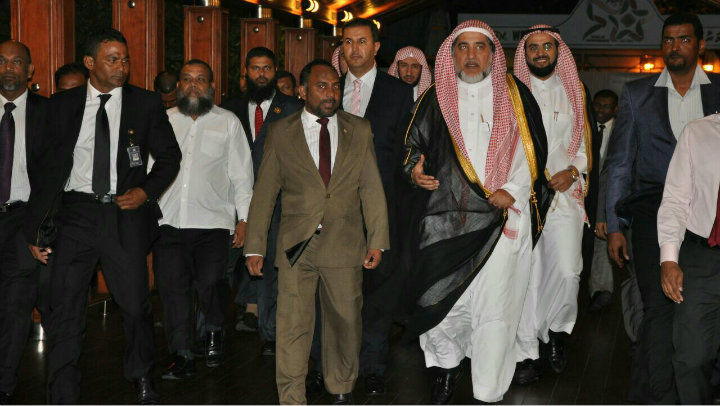Saudi Arabia to help maintain Maldives religious unity
Saudi Arabia and the Maldives signed an MOU today to enhance ties in Islamic affairs, including maintaining religious unity, and training Imams and religious scholars.

19 Nov 2015, 09:00
The Maldives and Saudi Arabia committed today to strengthening religious unity in an ongoing visit by the monarchy’s Islamic Affairs Minister Saleh bin Abdulaziz.
Saleh, who is in the Maldives on President Abdulla Yameen’s invitation, called the agreement with his Maldivian counterpart Dr Ahmed Ziyad Bagir a “religious bridge” between the two countries.
“Maldives and Saudi Arabia are 100 percent Muslim countries. We do not want any change to this percentage, and neither would the Maldives… Opening up to the world does not mean a change in a country’s essence,” he said.
Ziyad said Saudi Arabia will help the Maldives improve the collection of Zakat, an Islamic tax, publish books on Islam in English, expedite ongoing mosque projects and train Imams.
Become a member
Get full access to our archive and personalise your experience.
Already a member?
Discussion
No comments yet. Be the first to share your thoughts!
No comments yet. Be the first to join the conversation!
Join the Conversation
Sign in to share your thoughts under an alias and take part in the discussion. Independent journalism thrives on open, respectful debate — your voice matters.




